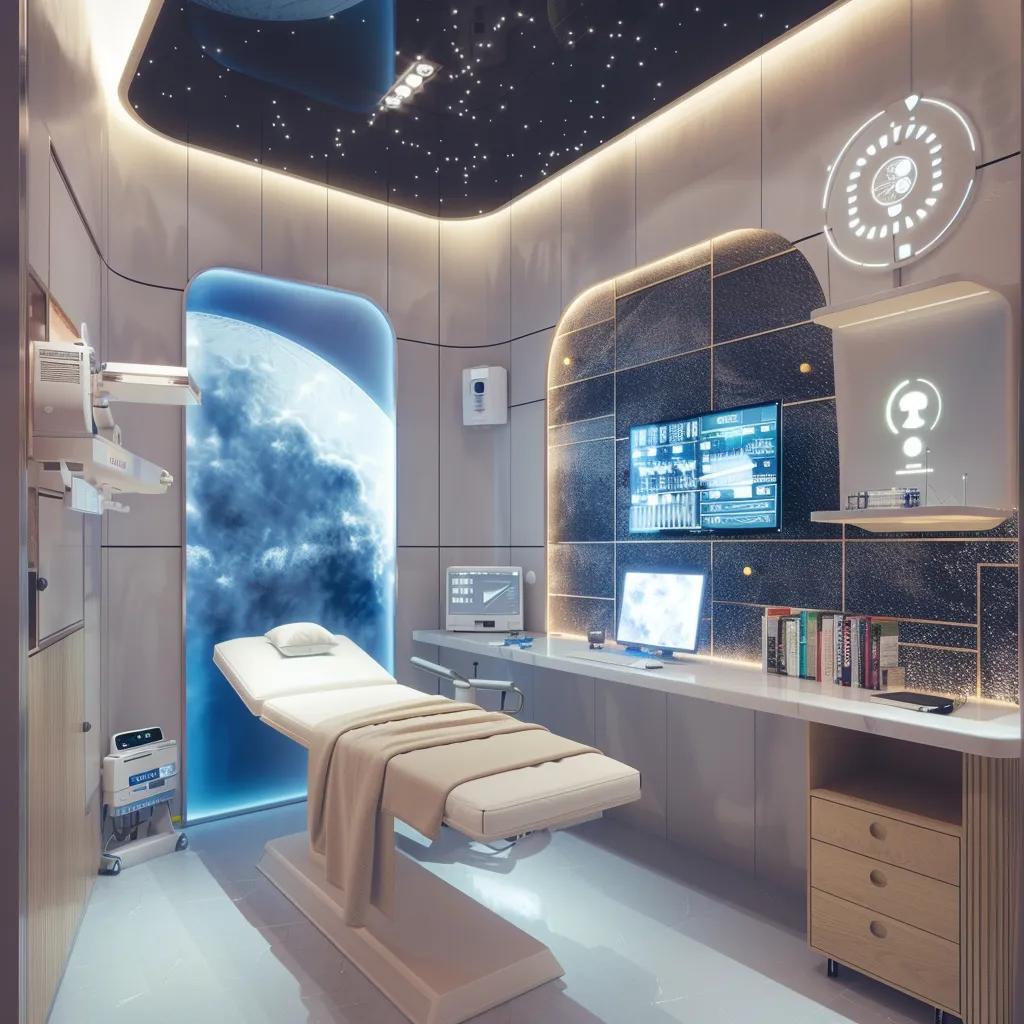Redefining the Experience of Chronic Pain
Managing long-term pain requires more than medication—it calls for a strategic, personalized approach that considers the physical, emotional, and social dimensions of chronic pain. At Renova Wellness & Consulting, our method centers on developing comprehensive and adaptive care strategies that evolve with each patient’s journey.
Our first priority is understanding the personal impact of chronic pain. Every individual experiences pain differently, so treatment plans must reflect that uniqueness. For example, one person may respond well to gentle physical therapy, while another finds lasting relief through acupuncture or therapeutic massage.
Equally important is our effort to reshape the conversation around chronic pain. We dispel myths that equate pain relief with dependency on strong medications. Instead, we introduce alternative options—such as biofeedback, mindfulness techniques, and light movement therapies—that empower patients to take control of their pain without sacrificing safety or well-being.
Finally, long-term pain management requires forward planning. Flare-ups are inevitable, so we help patients prepare in advance. This includes creating personalized pain flare protocols, scheduling routine evaluations, and adjusting treatment as needed. Our goal is to provide stable, responsive care that supports each phase of healing.
Understanding the Impact of Chronic Pain
Chronic pain doesn’t just affect the body—it seeps into every corner of life. It can alter mood, strain relationships, and disrupt a person’s ability to work or socialize. Our team at Renova Wellness acknowledges these widespread effects and integrates support for the whole person, not just the symptoms.
Biologically, chronic pain often leads to changes in how the nervous system processes discomfort. Misfiring pain signals can create a constant loop of pain perception, even when no physical injury is present. Our treatments target these signals with therapies like nerve stimulation, physical rehabilitation, or anti-inflammatory protocols to help restore proper function.
In daily life, chronic pain creates practical barriers. Even basic tasks can become daunting, which is why we often recommend environmental modifications—like ergonomic workstations, rest schedules, or movement breaks—that make everyday activities manageable again.
Mental health support is also a cornerstone of our care model. Anxiety and depression commonly coexist with chronic pain, forming a cycle that can intensify discomfort. Our licensed therapists work with patients to address these emotional hurdles, offering tools that promote emotional regulation and build long-term resilience.
Debunking Chronic Pain Myths
Misinformation about pain management is one of the biggest obstacles to recovery. At Renova, we educate our patients about the realities of chronic pain and steer them toward evidence-based solutions that offer lasting relief.
One widespread myth is that medication is the only effective solution. While some medications play a role, they are rarely the full answer. Physical therapy, for instance, can restore mobility and reduce pain levels significantly by retraining muscles and joints to function better. These methods are not only effective but also carry fewer long-term risks.
Another myth is that chronic pain is purely physical. In reality, pain is a complex interaction between mind and body. Cognitive behavioral therapy (CBT) helps patients recognize and modify the mental patterns that can amplify pain. This psychological support can reduce both pain severity and its interference with daily life.
We also emphasize the role of daily habits. People often overlook how much their lifestyle contributes to pain intensity. Simple changes like improving sleep hygiene, managing stress, and eating anti-inflammatory foods can dramatically reduce chronic pain, proving that lifestyle changes are not supplementary—they’re foundational.
Core Strategies for Long-Term Relief
At Renova, our approach to sustainable pain relief is based on an integrated model that blends medical expertise, therapeutic techniques, and behavioral coaching. This combination delivers well-rounded care that addresses each layer of the pain experience.
Medical intervention is often the starting point. Some patients benefit from minimally invasive procedures, while others might require prescription management. We ensure that all treatments are tailored to the patient’s condition, medical history, and tolerance for various options.
Therapeutic support follows closely behind. Our offerings include everything from massage and acupuncture to trauma-informed counseling and occupational therapy. These therapies not only reduce pain but also enhance the body’s ability to heal and the mind’s capacity to cope.
Lifestyle transformation ties the strategy together. We coach our patients through gradual changes in diet, exercise, sleep, and stress management. These shifts support whole-body healing and prevent pain from returning once the initial symptoms are managed.

A Hands-On Strategy for Managing Chronic Pain
Our strategic framework revolves around active participation. We educate our patients thoroughly, equip them with real-world tools, and cultivate strong relationships with their care providers.
Education is step one. We provide patients with a clear understanding of their diagnosis, pain triggers, and treatment pathways. Workshops and one-on-one sessions help patients learn to interpret their own symptoms and engage with their recovery process fully.
From there, we supply self-management tools like pain-tracking apps, mindfulness resources, and breathing exercises. These tools allow patients to intervene in their own pain cycles, reduce dependency on emergency care, and regain a sense of autonomy.
The final element is consistent collaboration. Through scheduled follow-ups and open communication channels, we keep patients connected with our care team. This ongoing partnership ensures that treatment plans remain flexible and relevant, evolving as the patient’s needs change.
Recognizing When to Adjust Treatment
Knowing when to modify a chronic pain treatment plan is crucial. At Renova, we use digital health tools and direct patient feedback to determine when it’s time to escalate or change direction.
Pain tracking helps identify trends. If a patient reports persistent or worsening discomfort despite current therapies, we know it’s time to reassess. These insights can lead to rethinking medication doses, introducing new therapies, or discontinuing ineffective interventions.
We also track functional outcomes. If pain is limiting a patient’s mobility or independence, we evaluate how our treatments are affecting their day-to-day abilities. Adjustments may involve shifting to different therapies that better support functional restoration.
Emotional health is another signal. If we notice growing anxiety, frustration, or hopelessness, it often reflects a treatment gap. In such cases, we may refer patients to psychological services or adjust the care plan to include emotional recovery as a priority.
Support Resources and Technological Guidance
Technology plays a vital role in extending and personalizing our care for chronic pain patients. From virtual consultations to wearable devices, Renova’s resources offer real-time insights and increased accessibility.
Telemedicine enables us to stay in touch with patients regardless of geography or mobility constraints. This is especially useful for those who struggle with travel due to their condition. Appointments via video allow us to check in on pain management plans and make quick adjustments.
Wearable devices collect valuable data on heart rate, movement, and stress levels. These insights help us understand how daily habits affect pain and provide feedback to guide personalized adjustments. Patients feel empowered knowing their progress is visible and measurable.
We also offer virtual reality (VR) therapy. This emerging tool helps distract from pain and guide patients through calming exercises in immersive environments. It’s especially effective for acute flare-ups or stress-induced pain episodes, offering instant relief without medication.
Best Practices for Preventing Flare-Ups
Proactive pain management goes beyond treatment—it involves prevention. Our team emphasizes foundational habits that help reduce the intensity and frequency of flare-ups over the long term.
Physical activity, tailored to your abilities, is one of the best ways to prevent worsening pain. We design gentle routines such as stretching, walking, or aquatic therapy to maintain strength and reduce stiffness without overloading the body.
Mental health care is equally vital. Stress can dramatically increase pain perception. That’s why we teach techniques like journaling, guided imagery, and meditation, which help regulate mood and minimize pain-related anxiety.
Nutrition and community are two often-overlooked components. Eating anti-inflammatory foods and avoiding processed sugars reduces systemic stress on the body. Meanwhile, staying socially connected helps ward off the isolation that often intensifies pain. These simple, sustainable practices can have profound impacts over time.
Restoring Control in Chronic Pain Recovery
At Renova Wellness & Consulting, our goal is to help patients restore control over their lives, starting with how they understand and manage pain. We combine medical innovation, personal empowerment, and a supportive environment to ensure long-lasting results.
Expert medical care is our cornerstone. With individualized treatment plans and access to multiple disciplines under one roof, we offer a full spectrum of solutions tailored to each person’s unique experience with pain.
Innovation is what keeps us ahead. From new tools like wearable tech and VR to integrated psychological therapies, we ensure our patients have access to the best possible resources for healing.
And above all, we build a compassionate, inclusive space where patients feel heard and supported. Living with chronic pain can be overwhelming, but at Renova, you’re never alone.
Request your appointment today!
Renova Wellness & consulting
801-317-8522 & info@renovawc.com
10694 S River Front Pkwy, South Jordan, UT 84095
Questions & Answers
What makes long-term pain management at Renova different?
We use a tailored blend of expert care, modern technology, and personalized lifestyle strategies to offer truly sustainable relief, adapting as your needs evolve.
Will I become dependent on medication?
No. We focus on minimizing reliance on medication by integrating physical therapy, cognitive techniques, and holistic therapies into your treatment plan.
Can digital tools really help manage my pain?
Yes. Telemedicine, wearable trackers, and virtual reality sessions are powerful tools we use to monitor your progress, manage symptoms, and enhance comfort between appointments.
Related Articles
Chronic Pain Therapy, Pain Doctor, Back Pain Therapy Treatment, Chroni, Acute Pain Management, Chronic Pain Treatments, Alternative Therapies, Chronic Pain Managment, Chronic Pain Clinics, Long Term Pain Management, Pain Medicine





